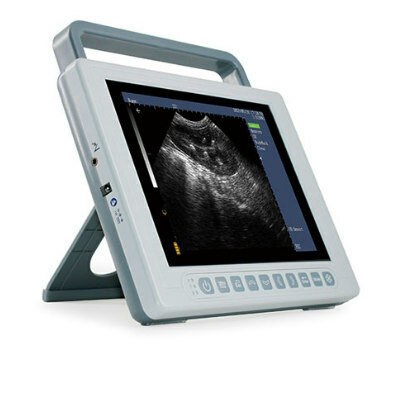Imaging for Alzheimer’s Also Predicts Cognitive Decline in Parkinson’s
By MedImaging International staff writers
Posted on 26 Dec 2011
A new way of classifying brain atrophy patterns in Alzheimer’s disease patients using magnetic resonance imaging (MRI) scans can also identify cognitive decline in Parkinson’s disease, according to a new study.Posted on 26 Dec 2011
Researchers also found that higher baseline Alzheimer’s patterns of atrophy predicted long-term cognitive decline in cognitively normal Parkinson’s patients. The study was published online December 2011 in the journal Brain.
“On the basis of a simple neuroimaging study, we can now predict which patients with Parkinson’s disease will experience long-term cognitive decline or develop dementia in the future,” said the study’s lead author, Daniel Weintraub, MD, associate professor of geriatric psychiatry with Perelman School of Medicine at the University of Pennsylvania (Philadelphia, USA) and the Philadelphia Veterans Affairs Medical Center. “Diagnostic tests like this can help us determine which patients would benefit from future clinical trials of medications aiming to stave off or prevent dementia progression in Parkinson’s disease.”
This research raises the possibility that both Alzheimer’s disease and Parkinson’s disease pathology contribute to cognitive decline in Parkinson’s disease. Scientists are still not sure whether the neurodegeneration seen in these patients is caused by primary Parkinson’s disease pathology, Alzheimer’s pathology, a combination of the two, or is a form of compensation.
As biomarkers for Alzheimer’s and Parkinson’s disease continue to emerge, the researchers suggest at least an overlap in regions undergoing neurodegeneration with cognitive decline, and point to the Spatial Pattern of Abnormalities for Recognition of Alzheimer’s disease (SPARE-AD) classification system to detect brain atrophy in Parkinson's disease, to detect patients at imminent risk of cognitive decline before clinically identifiable symptoms emerge.
Approximately 80% of Parkinson’s patients become demented over the course of the disorder. Some patients experience cognitive impairment comparatively soon after the disease hits, whereas others will not experience dementia until the very end of their disease. Duration and severity of the disease and advanced age are risk factors for dementia, whereas nearly almost 20% of patients never have dementia. Over half of Parkinson’s patients with dementia have significant signs of Alzheimer’s disease-related plaques and neurofibrillary tangles on autopsy, and similar brain regions, such as the hippocampus and medial temporal lobe, have been reported to be affected in both diseases.
The Penn research team applied a pattern classification individual-based score, the SPARE-AD score, to a cross-sectional cohort of 84 Parkinson’s patients including patients with dementia, mild cognitive impairment, and no dementia. In the cross-sectional analyses, the SPARE-AD score correlated to cognitive impairment across all groups. From this group, 59 Parkinson’s patients without dementia were monitored for an additional two years. Researchers determined that a higher baseline SPARE-AD score predicted worsening cognitive performance over time, even in those patients with normal cognition at baseline.
Related Links:
Perelman School of Medicine at the University of Pennsylvania














